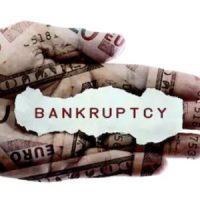Filing For Bankruptcy Protection Can Solve Some Of Your Financial Problems, But Not All Of Them

Bankruptcy can make you debt-free virtually overnight, but it can also sharply decrease your credit score and require you to give up valuable assets. Does filing for bankruptcy make your financial situation better or worse, then? Everyone has the right to file for bankruptcy protection as long as a certain amount of time has passed since your last bankruptcy filing; creditors cannot stop you, and neither can your ex-spouse. The process of filing for bankruptcy protection is the same for everyone, but the consequences vary from one case to another. When you file for chapter 7 bankruptcy, you reach an agreement with the court about which of your debts can be discharged (meaning that the creditors forgive them and you are no longer responsible for paying) and which assets, if any, you must sell in order to settle as many of your debts as possible. To find out if a bankruptcy filing is the right choice for you, contact a Plantation chapter 7 bankruptcy lawyer.
Problems That Filing for Bankruptcy Can Solve
Filing for chapter 7 bankruptcy is the fastest way to make large amounts of consumer debt disappear. It can make credit card debt and old medical bills vanish into thin air. If you are struggling to pay your mortgage, then chapter 7 bankruptcy can help you avoid foreclosure, because discharging your other debts will free up more money in your budget for mortgage payments. The best time to do this is before foreclosure proceedings officially begin, because a bankruptcy filing cannot halt a foreclosure case that is already in process.
Problems That a Bankruptcy Filing Cannot Solve
A bankruptcy filing can discharge certain types of debt, but not others. For example, it is not possible to discharge debts that you owe to the court (such as civil or criminal fines or lawsuit judgments), alimony, child support, tax debt, or most student loans. Likewise, it cannot protect your collateral on secured debts. For example, if you file for chapter 7 bankruptcy, the bankruptcy court will not make you forfeit your car, but the lender can still repossess it if you do not bring your payments current. Likewise, if you co-signed for an unsecured loan and later discharged it in bankruptcy, the person who co-signed is still responsible for repaying the loan. Most importantly, filing from bankruptcy does not stop you from incurring new debt; it only erases past debts, not future ones. It does not address the underlying causes that lead most consumers who file for chapter 7 bankruptcy to do so, namely high prices and low wages. It does, however, enable you to break away from old debts and focus on your current financial obligations.
Contact a South Florida Debt Lawyer About Filing for Chapter 7 Bankruptcy
Should you choose bankruptcy, debt consolidation, or some other strategy? A South Florida debt lawyer can help you decide whether chapter 7 bankruptcy is the best strategy for addressing your debt problems. Contact Nowack & Olson, PLLC in Plantation, Florida to discuss your case.
Source:
floridabar.org/public/consumer/pamphlet008/
